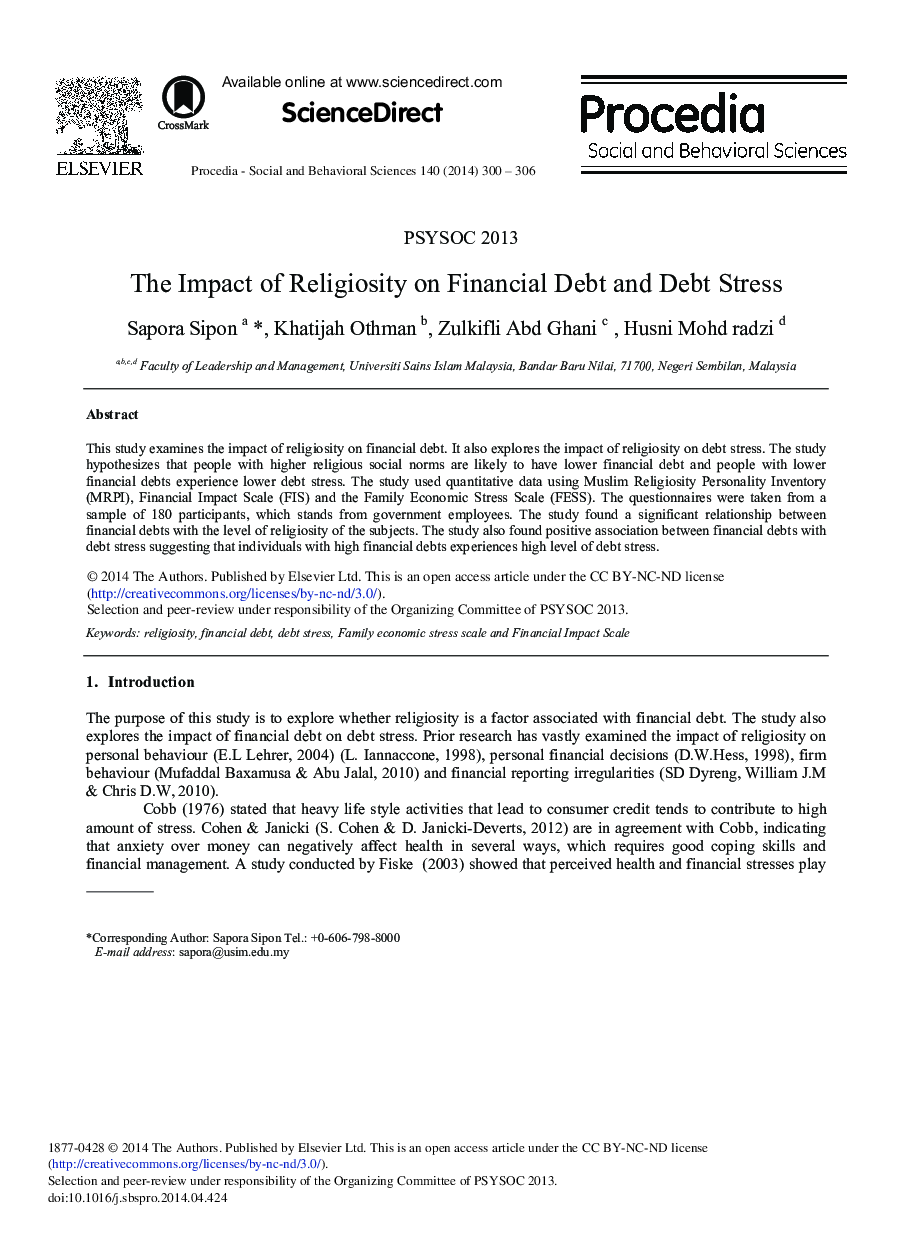| Article ID | Journal | Published Year | Pages | File Type |
|---|---|---|---|---|
| 1112931 | Procedia - Social and Behavioral Sciences | 2014 | 7 Pages |
This study examines the impact of religiosity on financial debt. It also explores the impact of religiosity on debt stress. The study hypothesizes that people with higher religious social norms are likely to have lower financial debt and people with lower financial debts experience lower debt stress. The study used quantitative data using Muslim Religiosity Personality Inventory (MRPI), Financial Impact Scale (FIS) and the Family Economic Stress Scale (FESS). The questionnaires were taken from a sample of 180 participants, which stands from government employees. The study found a significant relationship between financial debts with the level of religiosity of the subjects. The study also found positive association between financial debts with debt stress suggesting that individuals with high financial debts experiences high level of debt stress.
